If you’ve ever been interested in good sound, then you’re probably familiar with Dolby Technology. The company has been instrumental in the spread of surround sound in cinemas and living rooms; it has helped shape the transition from analogue to digital surround sound, greatly simplifying the accessibility of surround sound, and most recently, with Atmos, presented a 3D sound playback method.
Ray Dolby – a name that stands for good sound
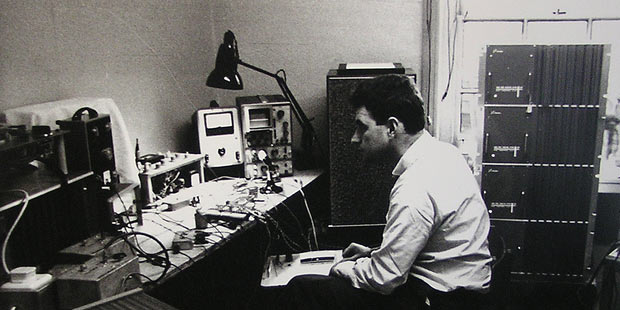
Without Ray Dolby, the world of audio technology would look different today. He was a visionary, inventor and founder of the most important company for analogue and digital audio formats. With his company, the Stanford graduate established the first noise reduction methods and played a major role in the development of surround sound. His special ambition was that his inventions should also be disseminated among private listeners.
Here you can find our detailed Portrait of Ray Dolby.
Dolby Surround
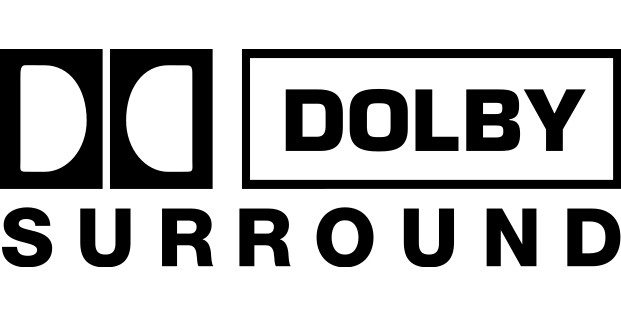
We perceive noises and sounds spatially, so we can tell exactly where a sound source is located and how it moves. With recorded sound, this was not possible for a long time. Dolby Surround has solved this problem: first introduced in 1982, the analogue reproduction process initially supported 3 channels, a fourth channel was added after an update in 1987. The technology is based on a matrix process that stores the information for 4 channels in 2 audio tracks. Today the process is only used in vintage systems. Matrices, on the other hand, are also important in times of digital audio information. The storage method is used in the new versions of Dolby Pro Logic, for example.
Dolby Pro Logic II
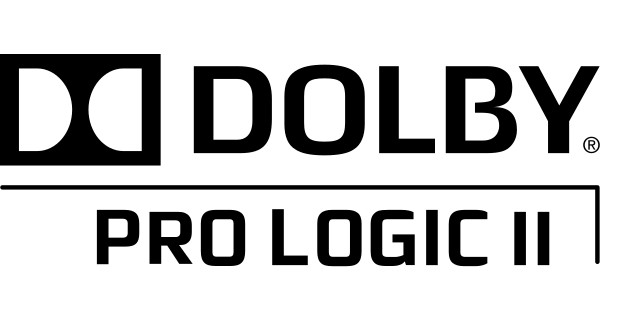
The Dolby Pro Logic standards are a revamp of surround sound. They prepare audio data that is actually only available in stereo for playback on surround systems. The current Dolby Pro Logic IIz standard even supports 9.1 setups. Upmixing” also works when the audio data is available for a 5.1 configuration. Dolby Pro Logic is integrated into many of our decoders to ensure that multi-channel systems can be played back to their full potential. This includes, for example, our CONSONO 25 CONCEPT Surround “5.1 Set”Opens in new tab.
Here you find an article about Dolby Pro Logic II.
Dolby Digital (Plus)
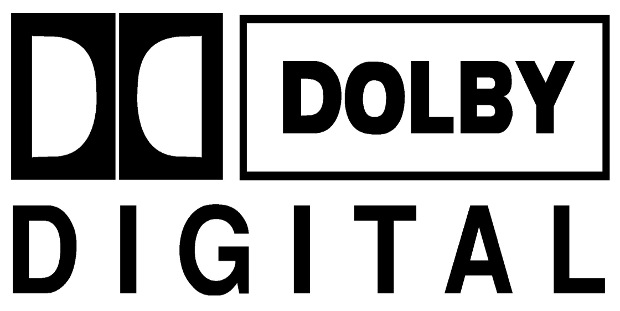
When Dolby Digital first established itself in cinemas and then in living rooms in the 1990s, it marked the transition from analogue to digital surround sound. The lossy digital playback method supports 5.1 channels and is the standard on DVDs. Further development is Dolby Digital Plus. This potentially supports 13.1 channels and was developed for playback on HD TVs and for online content. Dolby Digital Plus requires less bandwidth and provides better sound quality. This is one of the main reasons why many video streaming services, such as Netflix, offer most of their movies and TV shows in Dolby Digital Plus.
Home cinema with heavy bass
Dolby E

With our contribution to Dolby E, we looked at the sound production page. The codec enables the storage and editing of audio data. The data is stored in a maximum of 8 channels and can be edited independently. A special advantage is the coupling of the audio data to the images. This simplifies the editing of the images considerably. The codec can also be used to output standards such as Dolby Digital including the associated metadata.
Dolby Virtual Speaker
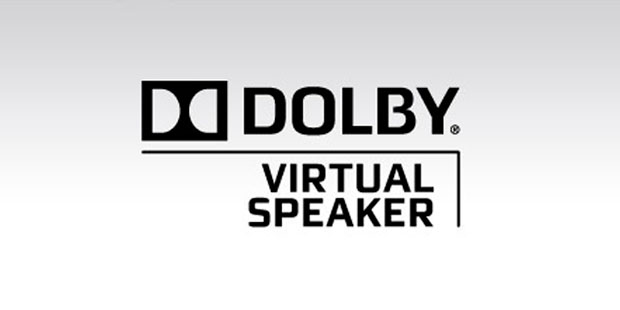
Strong surround sound without a 5.1 system? That’s exactly what Dolby Virtual Speaker (DVS) achieves. With this playback method, even stereo systems and soundbars create a room-filling surround sound, where the listener perceives sound events taking place to the sides and behind him. To achieve this, the audio signals are modulated in such a way that we perceive so-called virtual surround sound.
Learn more about Dolby Virtual Speaker on our blog.
Dolby True HD
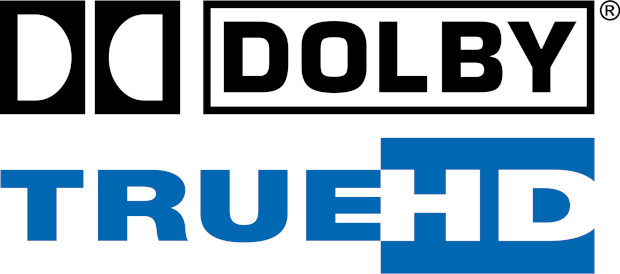
Dolby True HD is a digital multi-channel Dolby standard that allows audio data to reach the listener without any loss of data. The process was developed for the Blu-ray Disc. It offers sound engineers enough space to store all data using intelligent storage methods. Modern AV receivers, of course, also support this Dolby standard. However, it is largely at a disadvantage against its competitor DTS HD-Master.
Dolby Atmos
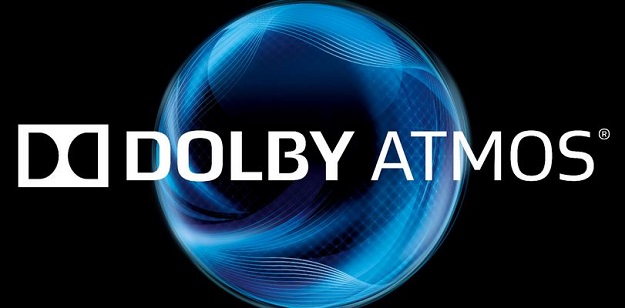
With Dolby Atmos, the Californians have once again achieved a real coup. This standard extends the soundstage by the height dimension. If something happens above our heads on the TV display, we hear the corresponding sound from above with Dolby Atmos. Dolby relies on a new, object-based playback method. With this procedure, the 3D sound can be reproduced with a 5.1.2 system – provided that the speakers are prepared for Dolby Atmos and a corresponding decoder is available. The LT-5 speakers licensed by Dolby Atmos prove how good 3D sound can sound from such a system. The 3D standard is also used in a number of Dolby Atmos cinemas.
Learn more about Dolby Atmos .
Dolby Vision

With Dolby Vision, Dolby is also trying to set the standard for video playback. The standard is used for television pictures with a particularly high contrast range (HDR). In the meantime, it is becoming apparent that the standard is being adopted by film producers and equipment manufacturers, although there is also a competitor for Dolby’s “highly dynamic” picture format. You can find out which one it is and everything else about Dolby Vision in our detailed blog post.
Systems from Teufel with Dolby support
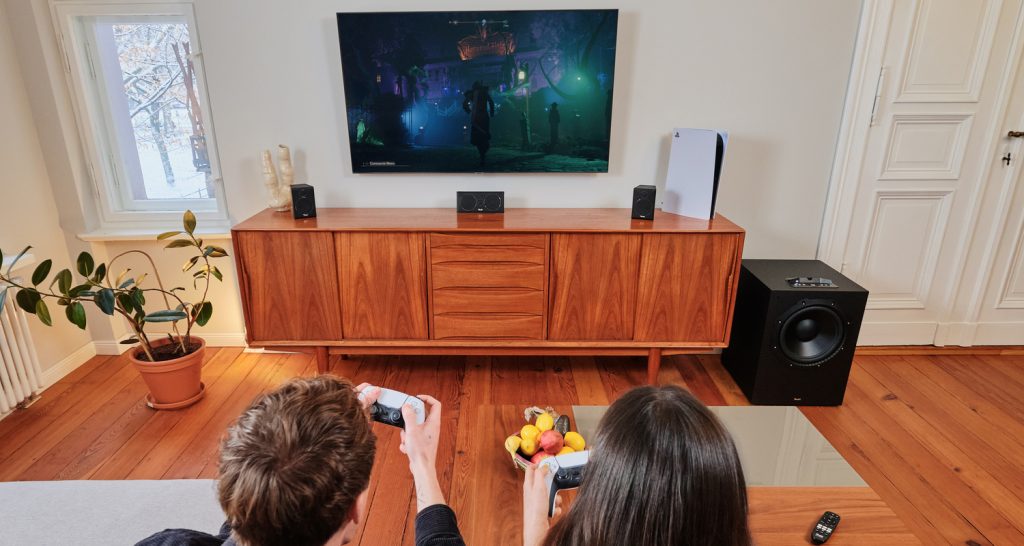 Opens in new tab
Opens in new tab▶ CONSONO 25 CONCEPT Surround Power Edition “5.1 Set”Opens in new tab: This 5.1 entertainer belongs to the category of the world’s most powerful 5.1 complete systems for consoles, movies and PCs. The 2-way satellite speakers with a large midrange driver and finely detailed tweeter harmonize perfectly with the subwoofer. The center offers two mid-range speakers for even better speech intelligibility. Thanks to Bluetooth 5.0, 5.1 USB-C sound card and wireless remote control, you can enjoy top-class entertainment.
▶ With the ULTIMA 40 KOMBO 3Opens in new tab, two beautifully shaped and beautifully sounding floorstanding speakers provide fantastic home cinema sound. The sound is managed by the Kombo 62 Mk2Opens in new tab CD receiver. Whether it’s classic with discs, DAB+ digital radio or streaming with Spotify and co. – this ready-to-play system can handle pretty much anything thanks to Bluetooth.
▶ You can find more complete home cinema systemsOpens in new tab including AV receiversOpens in new tab in our Teufel Shop.
Atmos-Sound from Teufel systems
- Logos ©Dolby
- Image 1: Clyde Adams III “Ray Dolby: Technologies Transforming the Entertainment Experience”, Source: Flickr.comOpens in new tab License: CC BY 2.0Opens in new tab.
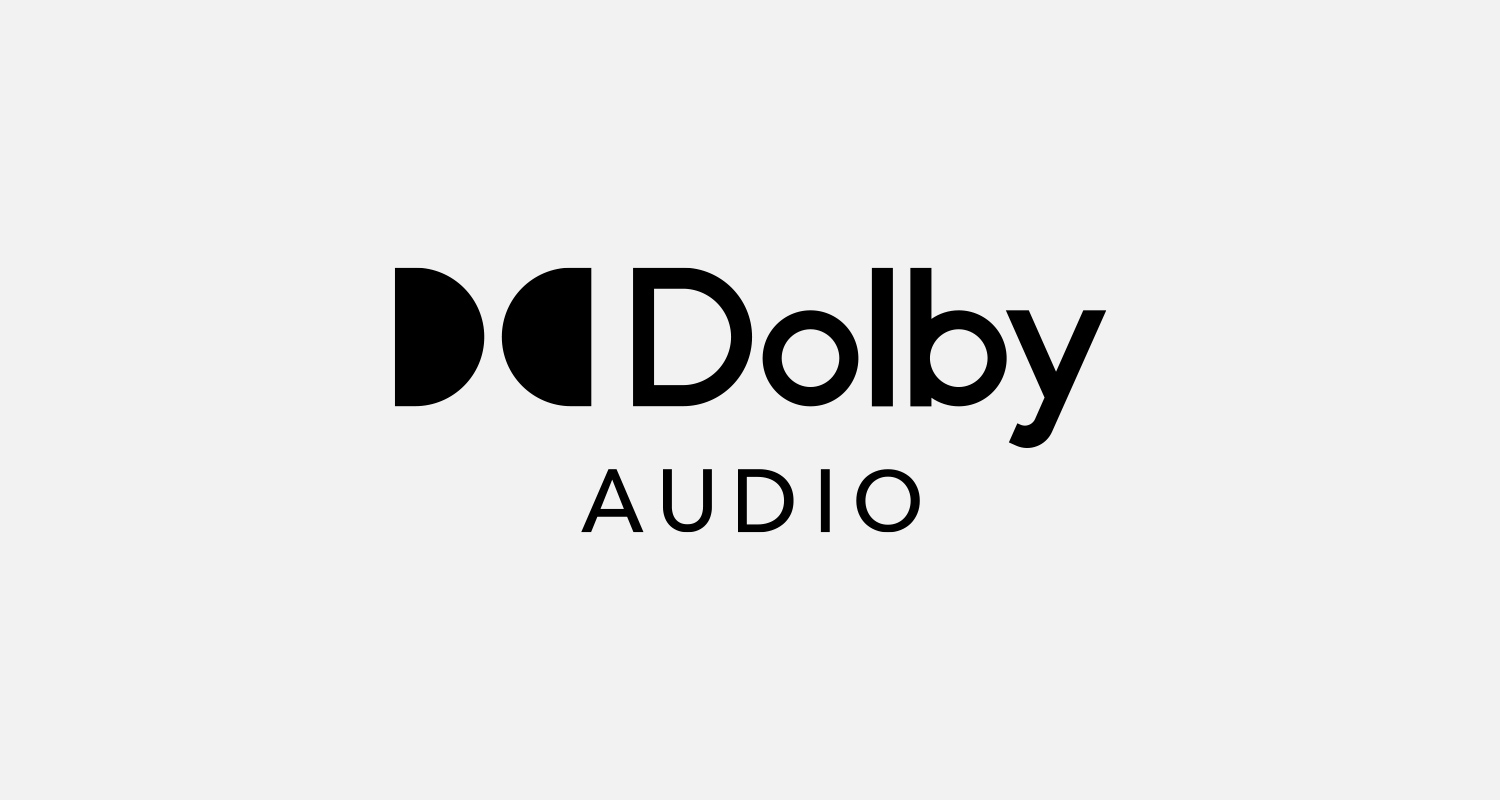
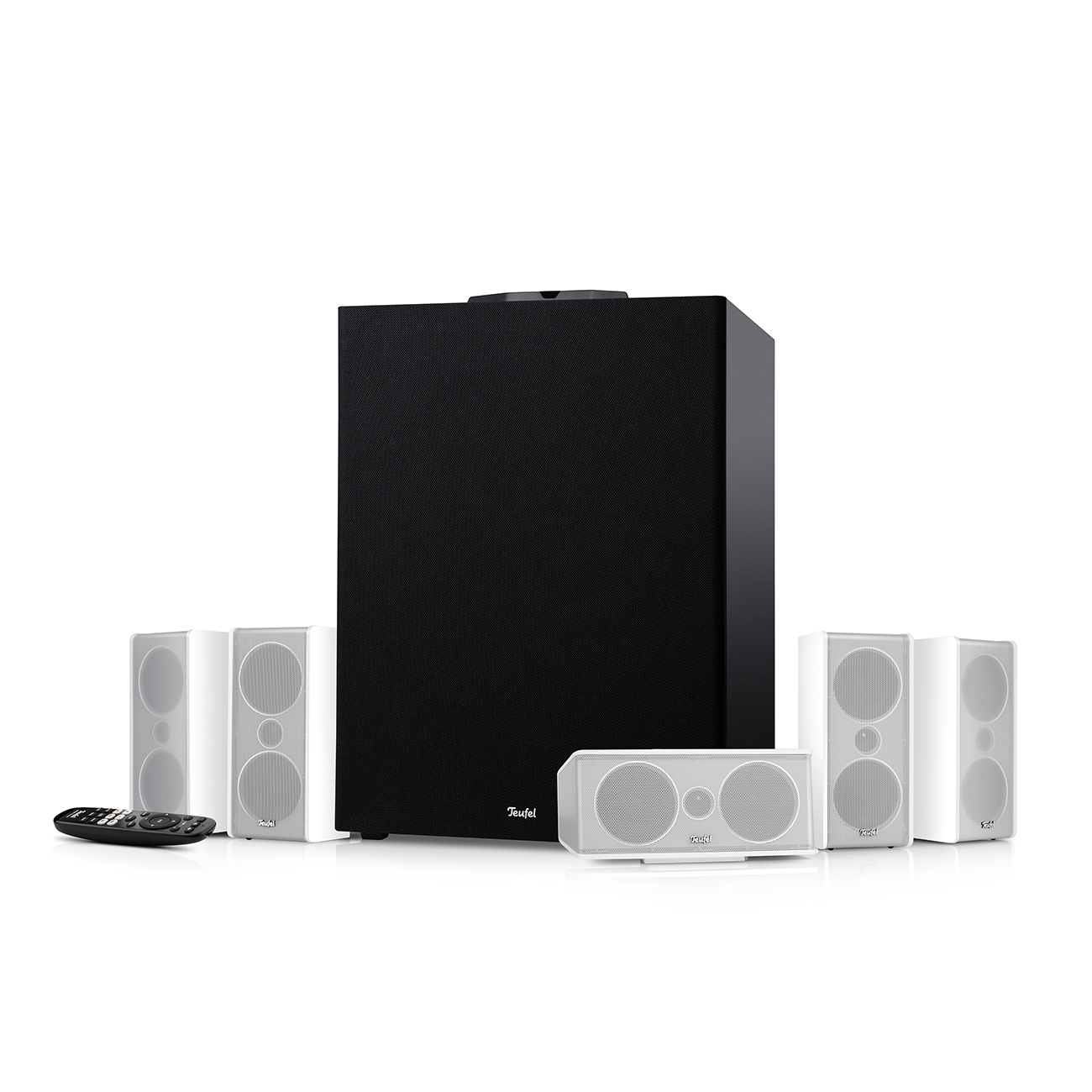
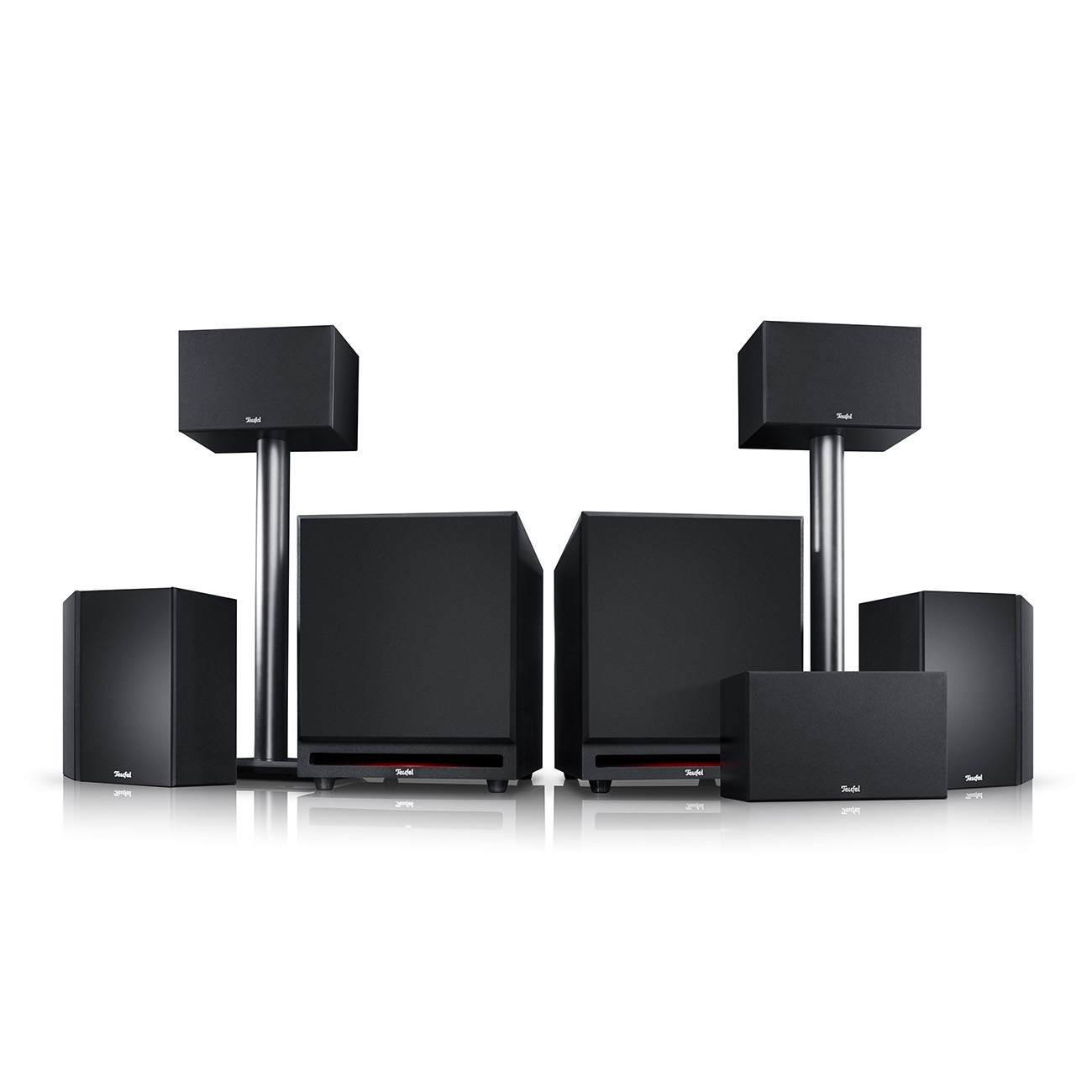
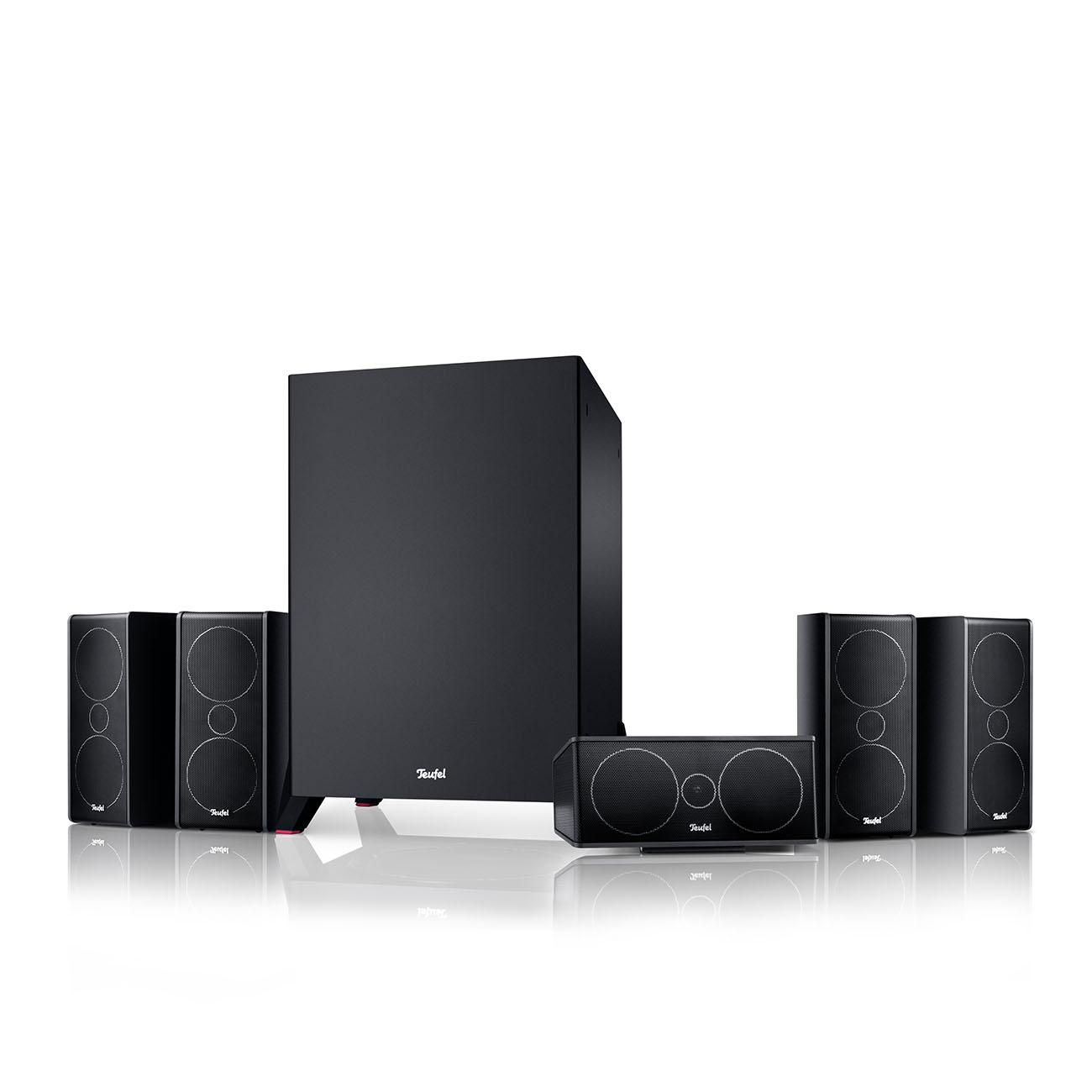
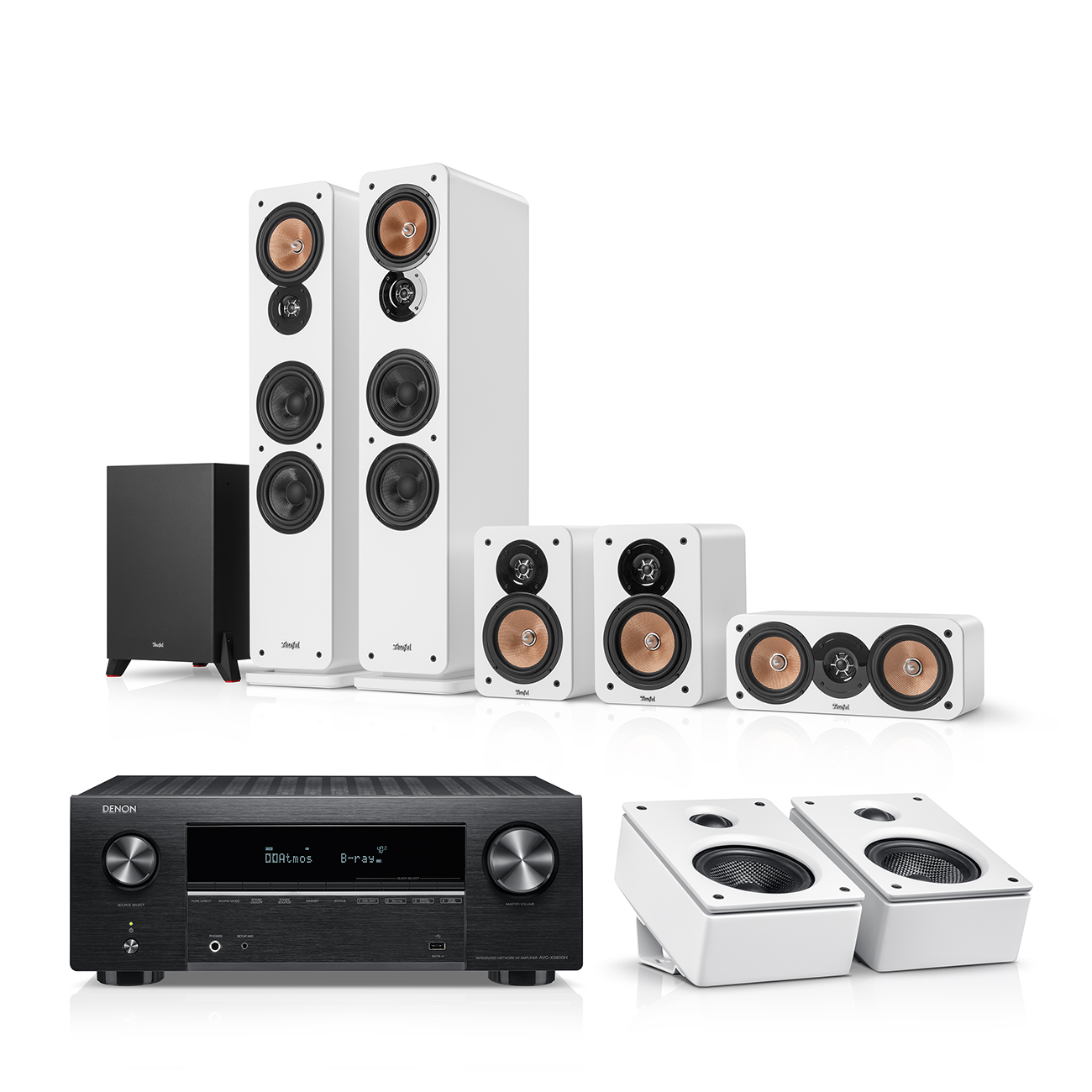
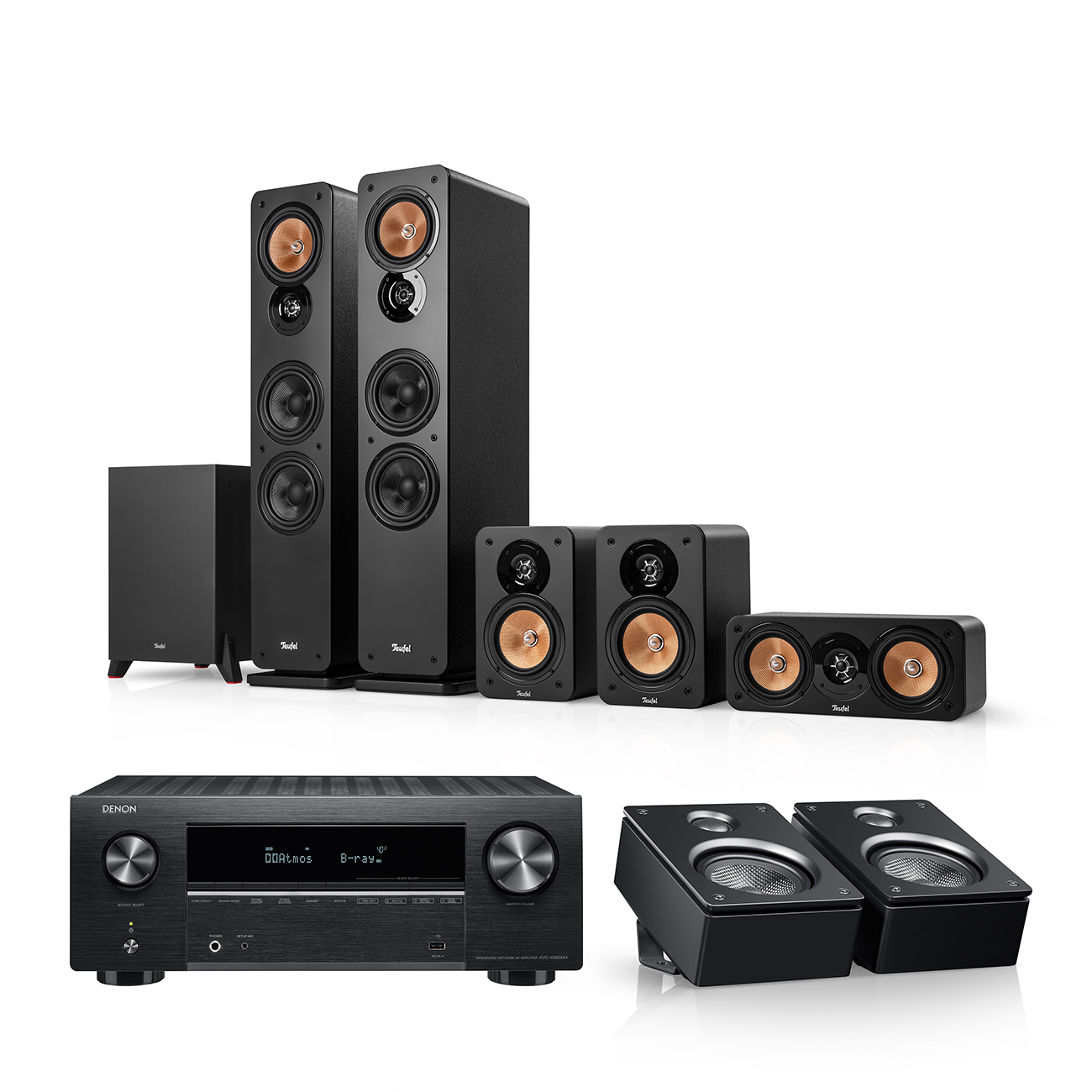
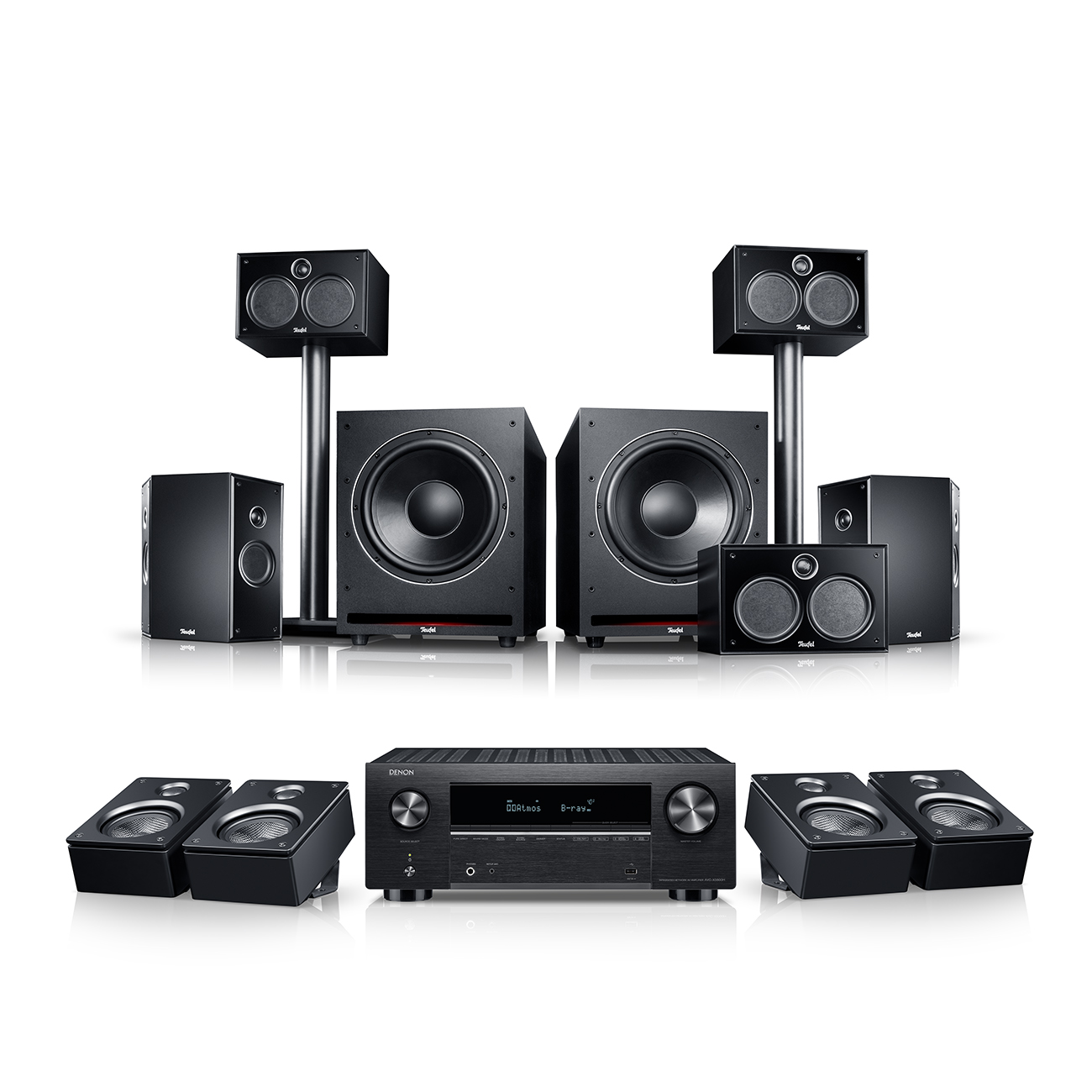
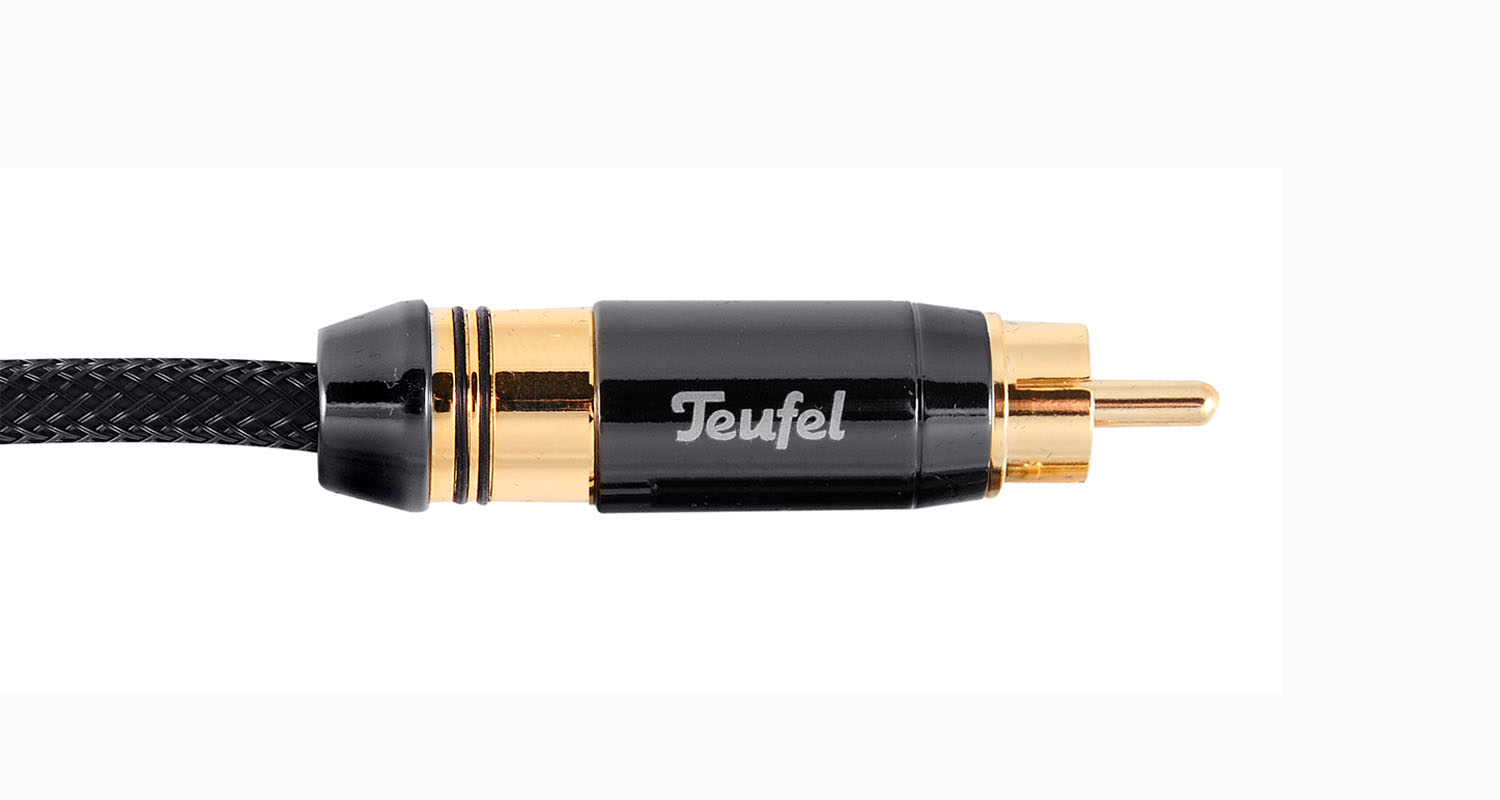
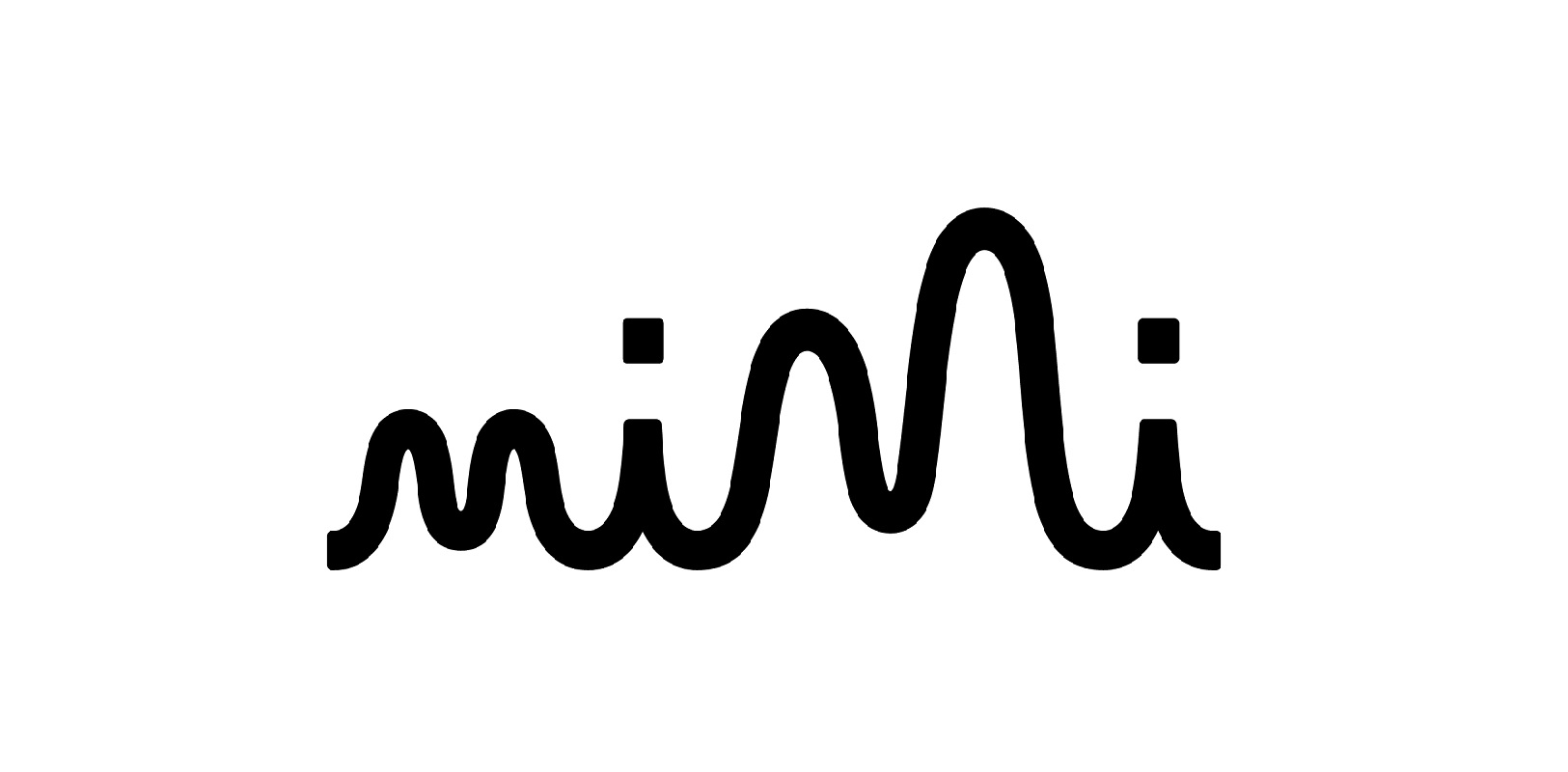
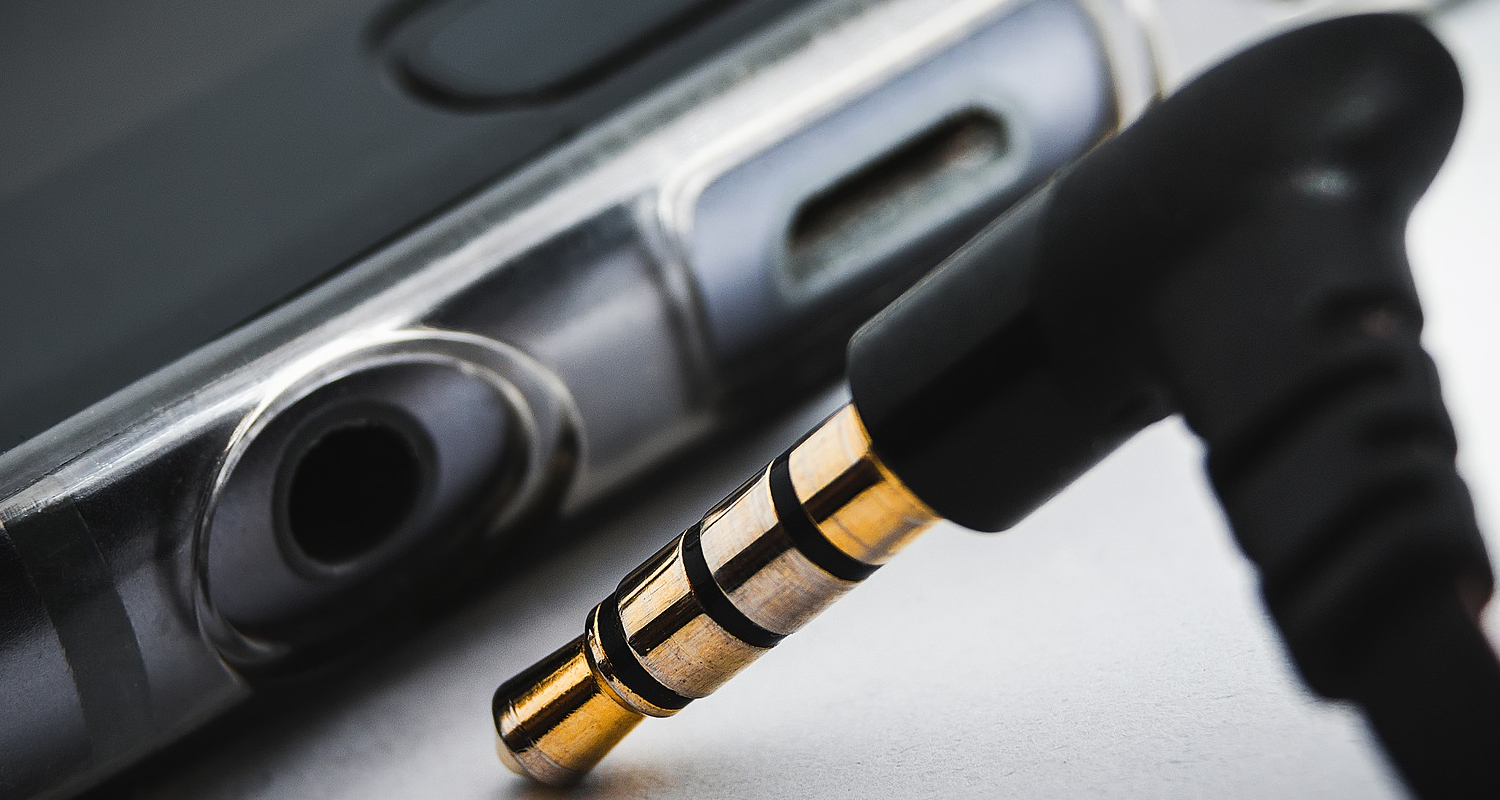
Leave a Reply